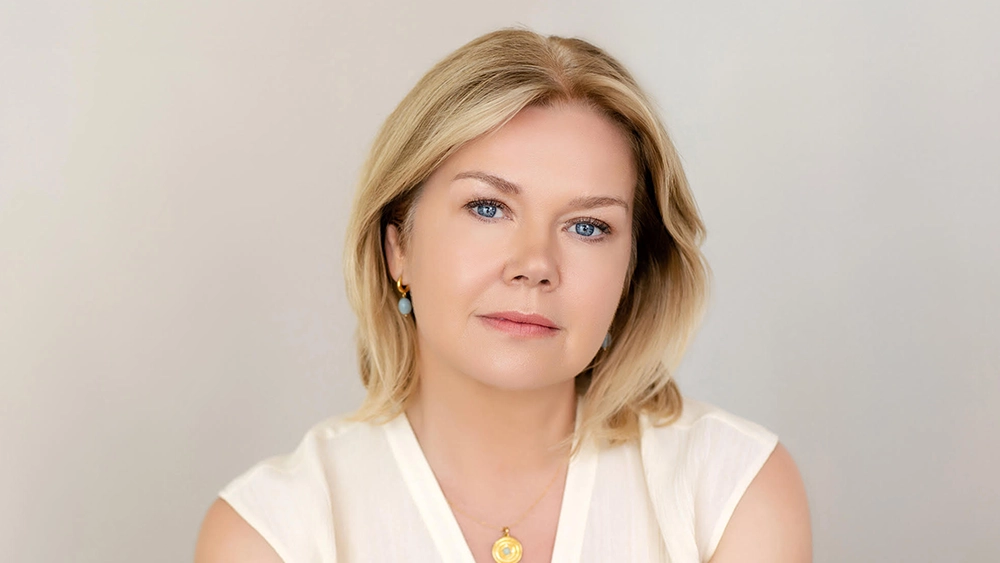Inside KPMG Law: Global head Stuart Bedford on why the Big Four's proposition is 'very different'
The ex-Linklaters corporate head now leads KPMG's legal arm and says the market is missing the point on the Big Four.

Contents
Stuart Bedford spent more than 20 years at Linklaters, moving between real estate, TMT and corporate, and eventually leading the City giant's corporate practice. In 2023, he made a surprising move: out of private practice and into the Big Four, taking the reins of KPMG’s legal arm. The attraction wasn’t more big-ticket M&A. It was the chance to build something different - legal services designed for a multidisciplinary firm, with technology and scale baked in from the start.
"I was approached by KPMG. And it was just a really interesting opportunity," he says in a conversation for The Non-Billable Podcast. What hooked him was "the whole multidisciplinary element" and a tech strategy that felt far ahead of what he’d seen before. "I was blown away by the technology side and what their vision around global delivery was."
For Bedford, the Big Four’s sweet spot isn’t competing with Magic Circle or US firms for billion-dollar deals. It’s in the layers underneath - reorganisations, entity management, regulatory change, post-merger integration. The kind of work that doesn’t make headlines but quietly determines whether big companies actually run the way they’re supposed to.
Listen to the full-length interview on the podcast. Episode page with links here.
Stay ahead of the City law market with our free email briefing - essential industry news and analysis, in your inbox three times a week.
From deals to delivery
KPMG Law is not trying to out-Kirkland Kirkland, Bedford explains. "We are not chasing after the next multi-billion leveraged buyout or the $20 billion cross-border merger that the Magic Circle or big US firms are looking at. For us it’s a very different area of focus."
That focus is work where legal services sit closely alongside tax, accounting and risk - KPMG’s home turf - and where tech helps cut through the complexity. "We do a huge amount of what I class as entity-related work. If you are reorganising a big complex group, you need really good tax advice, you need really good accounting advice and you need the lawyers to both advise but paper that over. That as a combined offering is a really strong one."
KPMG has invested in a platform to deliver that work at scale. "We have spent a lot on a technology platform that helps automate that, helps visualise that, helps project manage that." In Bedford’s view, the result is "a very logical product to offer," and "overall a better product offering in that space than when I did reorganisations at Linklaters."
We are not chasing after the next multi-billion leveraged buyout - for us it’s a very different area of focus.
The post-merger moment
Ask Bedford where the real opportunity sits and he points to the period after closing. "You think about something like post-merger integration. If you have to bring into line the terms of 50,000 contracts, that is a scale challenge." The solution is the right operating model rather than an army of associates. "Doing that, applying the right technology, providing the right process to that, but still having the legal overlay to make sure that you get it right is key."
Data is central - and a weak spot for traditional firms in his view. "Law firms, in my experience, tend not to really think about the data challenges that their clients face," he says. "Throughout pretty much most of my career at Linklaters I didn’t ever pass back data in a useful way to clients." The ambition at KPMG is to design for data from the start: "Thinking about how you organise a business to create the data pool and then extract value out of that by applying the right technology and process."
That thinking has come together in a multi-year transformation programme: Legal Reimagined. "We have built our tools into the Digital Gateway - an entity management tool, a business reorganisation tool, regulatory compliance tools. There’s been a big technology investment and a rollout of that." Alongside the tech sits the delivery function: the managed legal services and legal ops consulting business.
This is where KPMG wants to be judged: not on isolated deals, but on whether it can deliver "advisory at scale." He offers an example: "For a big tech company, we look after their global digital regulatory compliance. Rather than them having to call lots of different firms across jurisdictions, we run that centrally." The value-add is KPMG’s risk consultants then updating the client's policy and procedures to reflect the advice - "You get the advice and then the consulting team actually brings it into your environment. You get an end-to-end solution."
Law Firm | Trainee First Year | Trainee Second Year | Newly Qualified (NQ) |
|---|---|---|---|
| Addleshaw Goddard | £52,000 | £56,000 | £100,000 |
| Akin | £60,000 | £65,000 | £174,418 |
| A&O Shearman | £56,000 | £61,000 | £150,000 |
| Ashurst | £57,000 | £62,000 | £140,000 |
| Baker McKenzie | £56,000 | £61,000 | £145,000 |
| Bird & Bird | £48,500 | £53,500 | £102,000 |
| Bristows | £48,000 | £52,000 | £95,000 |
| Bryan Cave Leighton Paisner | £50,000 | £55,000 | £115,000 |
| Burges Salmon | £49,500 | £51,500 | £76,000 |
| Charles Russell Speechlys | £52,000 | £55,000 | £93,000 |
| Cleary Gottlieb | £62,500 | £67,500 | £164,500 |
| Clifford Chance | £56,000 | £61,000 | £150,000 |
| Clyde & Co | £48,500 | £51,000 | £85,000 |
| CMS | £50,000 | £55,000 | £120,000 |
| Cooley | £55,000 | £60,000 | £157,000 |
| Davis Polk | £65,000 | £70,000 | £180,000 |
| Debevoise | £55,000 | £60,000 | £173,000 |
| Dechert | £55,000 | £61,000 | £165,000 |
| Dentons | £52,000 | £56,000 | £104,000 |
| DLA Piper | £52,000 | £57,000 | £130,000 |
| Eversheds Sutherland | £50,000 | £55,000 | £110,000 |
| Farrer & Co | £47,000 | £49,000 | £88,000 |
| Fieldfisher | £48,500 | £52,000 | £100,000 |
| Freshfields | £56,000 | £61,000 | £150,000 |
| Fried Frank | £55,000 | £60,000 | £175,000 |
| Gibson Dunn | £60,000 | £65,000 | £180,000 |
| Goodwin Procter | £55,000 | £60,000 | £175,000 |
| Gowling WLG | £48,500 | £53,500 | £105,000 |
| Herbert Smith Freehills Kramer | £56,000 | £61,000 | £145,000 |
| HFW | £50,000 | £54,000 | £103,500 |
| Hill Dickinson | £43,000 | £45,000 | £80,000 |
| Hogan Lovells | £56,000 | £61,000 | £140,000 |
| Irwin Mitchell | £43,500 | £45,500 | £78,000 |
| Jones Day | £60,000 | £68,000 | £165,000 |
| K&L Gates | £50,000 | £55,000 | £115,000 |
| Kennedys | £43,000 | £46,000 | £85,000 |
| King & Spalding | £62,000 | £67,000 | £175,000 |
| Kirkland & Ellis | £60,000 | £65,000 | £174,418 |
| Latham & Watkins | £60,000 | £65,000 | £174,418 |
| Linklaters | £56,000 | £61,000 | £150,000 |
| Macfarlanes | £56,000 | £61,000 | £140,000 |
| Mayer Brown | £55,000 | £60,000 | £150,000 |
| McDermott Will & Schulte | £65,000 | £70,000 | £174,418 |
| Milbank | £65,000 | £70,000 | £174,418 |
| Mills & Reeve | £45,000 | £47,000 | £84,000 |
| Mischon de Reya | £50,000 | £55,000 | £100,000 |
| Norton Rose Fulbright | £56,000 | £61,000 | £135,000 |
| Orrick | £60,000 | £65,000 | £160,000 |
| Osborne Clarke | £55,500 | £57,500 | £97,000 |
| Paul Hastings | £60,000 | £68,000 | £173,000 |
| Paul Weiss | £60,000 | £65,000 | £180,000 |
| Penningtons Manches Cooper | £48,000 | £50,000 | £83,000 |
| Pinsent Masons | £52,000 | £57,000 | £105,000 |
| Quinn Emanuel | n/a | n/a | £180,000 |
| Reed Smith | £53,000 | £58,000 | £125,000 |
| Ropes & Gray | £60,000 | £65,000 | £165,000 |
| RPC | £48,000 | £52,000 | £95,000 |
| Shoosmiths | £45,000 | £47,000 | £105,000 |
| Sidley Austin | £60,000 | £65,000 | £175,000 |
| Simmons & Simmons | £54,000 | £59,000 | £120,000 |
| Simpson Thacher | n/a | n/a | £178,000 |
| Skadden | £58,000 | £63,000 | £177,000 |
| Slaughter and May | £56,000 | £61,000 | £150,000 |
| Squire Patton Boggs | £50,000 | £55,000 | £110,000 |
| Stephenson Harwood | £50,000 | £55,000 | £105,000 |
| Sullivan & Cromwell | £65,000 | £70,000 | £174,418 |
| Taylor Wessing | £52,000 | £57,000 | £115,000 |
| TLT | £44,000 | £47,500 | £85,000 |
| Travers Smith | £55,000 | £60,000 | £130,000 |
| Trowers & Hamlins | £47,000 | £51,000 | £85,000 |
| Vinson & Elkins | £60,000 | £65,000 | £173,077 |
| Watson Farley & Williams | £51,500 | £56,000 | £107,000 |
| Weightmans | £36,000 | £38,000 | £70,000 |
| Weil | £60,000 | £65,000 | £170,000 |
| White & Case | £62,000 | £67,000 | £175,000 |
| Willkie Farr & Gallagher | £60,000 | £65,000 | £170,000 |
| Withers | £47,000 | £52,000 | £95,000 |
| Womble Bond Dickinson | £43,000 | £45,000 | £83,000 |
Rank | Law Firm | Revenue | Profit per Equity Partner (PEP) |
|---|---|---|---|
| 1 | DLA Piper* | £3,130,000,000 | £2,500,000 |
| 2 | A&O Shearman | £2,900,000,000 | £2,000,000 |
| 3 | Clifford Chance | £2,400,000,000 | £2,100,000 |
| 4 | Hogan Lovells | £2,320,000,000 | £2,400,000 |
| 5 | Linklaters | £2,320,000,000 | £2,200,000 |
| 6 | Freshfields | £2,250,000,000 | Not disclosed |
| 7 | CMS** | £1,800,000,000 | Not disclosed |
| 8 | Norton Rose Fulbright* | £1,800,000,000 | Not disclosed |
| 9 | HSF Kramer | £1,360,000,000 | £1,400,000 |
| 10 | Ashurst | £1,030,000,000 | £1,390,000 |
| 11 | Clyde & Co | £854,000,000 | Not disclosed |
| 12 | Eversheds Sutherland | £769,000,000 | £1,400,000 |
| 13 | Pinsent Masons | £680,000,000 | £790,000 |
| 14 | Slaughter and May*** | £650,000,000 | Not disclosed |
| 15 | BCLP* | £640,000,000 | £790,000 |
| 16 | Simmons & Simmons | £615,000,000 | £1,120,000 |
| 17 | Bird & Bird** | £580,000,000 | £720,000 |
| 18 | Addleshaw Goddard | £550,000,000 | £1,000,000 |
| 19 | Taylor Wessing | £526,000,000 | £1,100,000 |
| 20 | Osborne Clarke** | £476,000,000 | £800,000 |
| 21 | DWF | £466,000,000 | Not disclosed |
| 22 | Womble Bond Dickinson | £450,000,000 | Not disclosed |
| 23 | Kennedys | £428,000,000 | Not disclosed |
| 24 | Fieldfisher | £385,000,000 | £1,000,000 |
| 25 | Macfarlanes | £371,000,000 | £3,100,000 |
What do City lawyers actually do each day?
For a closer look at the day-to-day of some of the most common types of lawyers working in corporate law firms, explore our lawyer job profiles:
'A standard set of articles': what the market gets wrong
Bedford jokes about the way the legal press tends to cover the Big Four. "There is a standard set of articles - 'the Big Four are coming' or six months later 'the Big Four have tried to come and they've not succeeded.' Those seem to be like stock articles. The reality is very different to that."
A typical question he gets - "tell me the latest deals you’ve been on" - misses the point entirely. "We’ve already started from the wrong points," he says. KPMG may work with the same multinationals making $20 billion acquisitions, but "what we’ll be doing for them is not going to be visible. It’s not going to be hitting the front page of the FT, but it will be very important, making sure they are getting true value out of their group and they’re fully integrated, that their policies align, that they are getting the right sort of compliance."
There is a standard set of articles about the Big Four - the reality is very different to that.
Talent that builds systems
Can a Big Four law arm attract top talent without the lure of rainmaker economics? Bedford thinks the question misses the point. "It is really important you’ve got very high quality lawyers. But at the same time, you need people who look at the world and say - my solution is not immediately to go calling all around the world and putting that into a Word document. It’s how do I break down operationally that? How can I deliver this in a particular way? How can I make it efficient?"
He points to a recent UK real estate hire as the model: strong lawyers who, combined with KPMG’s Digital Gateway and managed service capability, can "blend the technology, the AI tools, and create a way of managing the portfolio for a big real estate fund and delivering certainty and value."
Culturally, integration across the firm is non-negotiable. "If you enable your tax colleagues or your accounting advisory colleagues to win more work by being able to say this is the complete package we can offer with law wrapped into that, you’re more likely to win. And actually the revenue we all share out amongst us is greater." The opposite - "a sort of siloed legal team doing what they previously did at a law firm" - is a dead end.
Have the Big Four 'made it' in law?
"The answer is still very much evolving," Bedford says. "There have clearly been false starts, it’s not been a straightforward growth journey." But he’s clear about the direction of travel. "Each year we learn and adapt. Law is more and more embedded into the journey. With what’s happening in the technology environment in the industry, I don’t think law in the Big Four is going anywhere."
The lesson, in his view, is to play to your comparative advantages - global footprint, multidisciplinary delivery, scale - and resist the temptation to chase the highest-margin corner of the market. "We’re not going to be challenging Kirkland & Ellis for PE deals anytime soon. That’s just not where we are."
It's not been a straightforward growth journey. Each year we learn and adapt. Law is more and more embedded into the journey.
Why KPMG picked Arizona for its US push
Earlier this year, KPMG made headlines by securing an ABS (alternative business structure) licence in Arizona, allowing it to provide certain regulated legal services in the US.
"This is not for us about going head to head around the advisory aspects of law. The focus very much out of the US is around the managed services and the entity management and the group reorganisations because we’ve got a fantastic tax business over there with a huge number of clients," Bedford says. KPMG already has a legal ops consulting arm in the US.
Client demand is strong, he says. "We’ve had a very positive response. There is a demand for different ways of approaching the global problems that big banks and big corporates face. They want to speak to somebody in the US but they also want to know that that conversation enables them to open up a network." With "very global" coverage, Digital Gateway connectivity and "good process skills and technology," the proposition "is playing very well in the US market."
And no, it isn’t a stealth bid to unseat the Big Law incumbents. "We’re not trying to tackle the big high-end work that makes ridiculous margins for Davis Polk and K&E, [but] service the more day-to-day legal service requirements of some of those big global businesses."
Will the rest of the Big Four follow? Strategies differ, Bedford says, but for KPMG the US opening was "absolutely core" to Legal Reimagined: "build the tech, build the managed services capability," then add a US platform so delivery can be truly global.
| Firm | London office since | Known for in London |
|---|---|---|
| Akin | 1997 | Restructuring, funds |
| Baker McKenzie | 1961 | Finance, capital markets, TMT |
| Davis Polk | 1972 | Leveraged finance, corporate/M&A |
| Gibson Dunn | 1979 | Private equity, arbitration, energy, resources and infrastructure |
| Goodwin | 2008 | Private equity, funds, life sciences |
| Kirkland & Ellis | 1994 | Private equity, funds, restructuring |
| Latham & Watkins | 1990 | Finance, private equity, capital markets |
| McDermott Will & Schulte | 1998 | Finance, funds, healthcare |
| Milbank | 1979 | Finance, capital markets, energy, resources and infrastructure |
| Paul Hastings | 1997 | Leveraged finance, structured finance, infrastructure |
| Paul Weiss | 2001 | Private equity, leveraged finance |
| Quinn Emanuel | 2008 | Litigation |
| Sidley Austin | 1974 | Leveraged finance, capital markets, corporate/M&A |
| Simpson Thacher | 1978 | Leveraged finance, private equity, funds |
| Skadden | 1988 | Finance, corporate/M&A, arbitration |
| Sullivan & Cromwell | 1972 | Corporate/M&A, restructuring, capital markets |
| Weil | 1996 | Restructuring, private equity, leverage finance |
| White & Case | 1971 | Capital markets, arbitration, energy, resources and infrastructure |
| Law firm | Type | First-year salary |
|---|---|---|
| White & Case | US firm | £32,000 |
| Stephenson Harwood | International | £30,000 |
| A&O Shearman | Magic Circle | £28,000 |
| Charles Russell Speechlys | International | £28,000 |
| Freshfields | Magic Circle | £28,000 |
| Herbert Smith Freehills | Silver Circle | £28,000 |
| Hogan Lovells | International | £28,000 |
| Linklaters | Magic Circle | £28,000 |
| Mishcon de Reya | International | £28,000 |
| Norton Rose Fulbright | International | £28,000 |
This is a condensed version of our full length interview with Stuart Bedford on The Non-Billable Podcast. View the episode page here.
Law Firm | Trainee First Year | Trainee Second Year | Newly Qualified (NQ) |
|---|---|---|---|
| A&O Shearman | £56,000 | £61,000 | £150,000 |
| Clifford Chance | £56,000 | £61,000 | £150,000 |
| Freshfields Bruckhaus Deringer | £56,000 | £61,000 | £150,000 |
| Linklaters | £56,000 | £61,000 | £150,000 |
| Slaughter and May | £56,000 | £61,000 | £150,000 |
Law Firm | Trainee First Year | Trainee Second Year | Newly Qualified (NQ) |
|---|---|---|---|
| A&O Shearman | £56,000 | £61,000 | £150,000 |
| Clifford Chance | £56,000 | £61,000 | £150,000 |
| Freshfields Bruckhaus Deringer | £56,000 | £61,000 | £150,000 |
| Linklaters | £56,000 | £61,000 | £150,000 |
| Slaughter and May | £56,000 | £61,000 | £150,000 |
Law Firm | Trainee First Year | Trainee Second Year | Newly Qualified (NQ) |
|---|---|---|---|
| Ashurst | £57,000 | £62,000 | £140,000 |
| Bryan Cave Leighton Paisner | £50,000 | £55,000 | £115,000 |
| Herbert Smith Freehills | £56,000 | £61,000 | £145,000 |
| Macfarlanes | £56,000 | £61,000 | £140,000 |
| Travers Smith | £55,000 | £60,000 | £130,000 |
| Firm | Merger year | Known for in London |
|---|---|---|
| BCLP | 2018 | Real estate, corporate/M&A, litigation |
| DLA Piper | 2005 | Corporate/M&A, real estate, energy, resources and infrastructure |
| Eversheds Sutherland | 2017 | Corporate/M&A, finance |
| Hogan Lovells | 2011 | Litigation, regulation, finance |
| Mayer Brown | 2002 | Finance, capital markets, real estate |
| Norton Rose Fulbright | 2013 | Energy, resources and infrastructure, insurance, finance |
| Reed Smith | 2007 | Shipping, finance, TMT |
| Squire Patton Boggs | 2011 | Corporate/M&A, pensions, TMT |
Law Firm | Trainee First Year | Trainee Second Year | Newly Qualified (NQ) |
|---|---|---|---|
| Ashurst | £57,000 | £62,000 | £140,000 |
| Bryan Cave Leighton Paisner | £50,000 | £55,000 | £115,000 |
| Herbert Smith Freehills Kramer | £56,000 | £61,000 | £145,000 |
| Macfarlanes | £56,000 | £61,000 | £140,000 |
| Travers Smith | £55,000 | £60,000 | £130,000 |
Our newsletter is the best
Get the free email that keeps UK lawyers ahead on the stories that matter.
We send a short summary of the biggest legal industry and business stories you need to know about three times a week. Free to join. Unsubscribe at any time.






